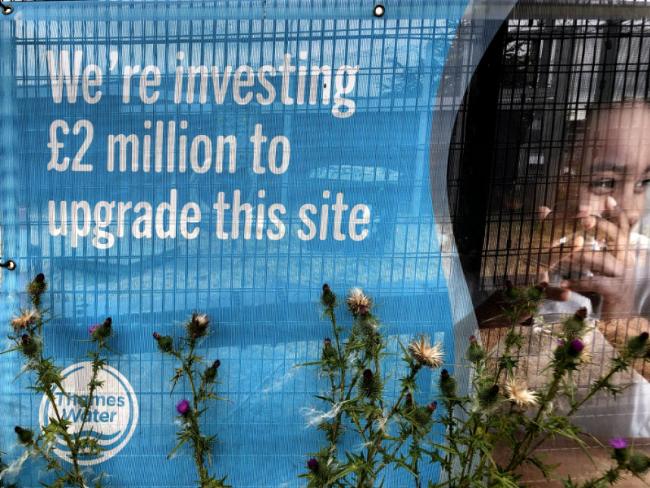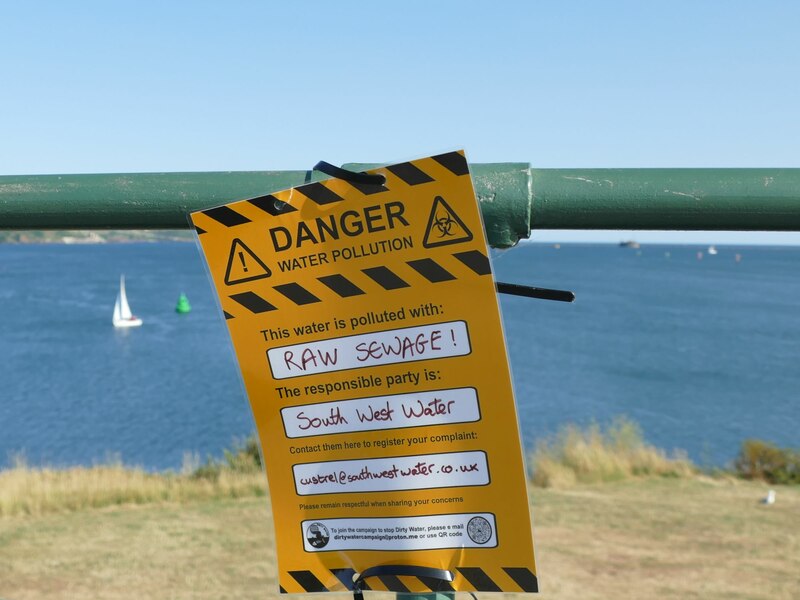23 February 2024

Thames Water claims it is investing, but is pumping more sewage into the river than ever. Photo Workers.
Despite layers of regulation and much campaigning, water companies increasingly pollute Britain’s rivers and coasts, while customers’ bills rise.
Across the whole sector, privatised water companies are burdened with heavy debt – yet still pay dividends to their owners. They say it’s borrowing to improve infrastructure, but they hide behind obscure ownership and financial structures.
Dumped
Last year, Thames Water dumped almost five times more sewage into rivers than it did in 2022. These figures are based on Thames Water’s own published data for its discharges from 118 sites across the network.
Data for the 9 months to December 2023 shows that Thames Water was spilling sewage for a combined total of over 6,500 hours. That’s about equal to one station continuously discharging over the whole period.
Routine
The Office for Environmental Protection has pointed out that the Department for Environment Food and Rural Affairs (Defra) and its regulators “may have” broken the law by allowing sewage spills to become too routine.
Campaigners and people directly affected have repeatedly said that the water companies are using a provision related to heavy rainfall to justify spills.
The Environment Agency issues fines for pollution. But it has failed to prevent the problem becoming worse. The Water Services Regulation Authority, known as Ofwat, has now announced that it will have new powers to fine companies for poor customer service.
Underlying cause
Even Defra is getting in on the act. It says that the managers of water companies will not get their bonuses if their companies commit offences. But like the other bodies involved, there’s no hint of tackling the underlying cause.
‘Thames Water is planning to raise customer bills.’
Thames Water is the largest water company in the country, with revenues up 11 per cent to £1.2 billion over the six months to 30 September 2023. It is planning to raise customer bills from £436 to £611 a year in the five years from 2025.
Last year, Thames paid out £37.5 million in dividends to its owner, Kemble Water Holdings Ltd. Yet it owes at least £14 billion in March 2023. According to a Financial Times report on 1 December, it is at risk because of loans made through complex financial structures.
Unregulated
Kemble Water is an unregulated holding company whose only source of income is dividends from Thames. Kemble’s main shareholders are a Canadian pension fund and the UK Universities Superannuation Scheme, the remainder being global investment funds.
A claimed injection of £500 million capital from shareholders last year has turned out to be a loan – repayable and liable to interest payments. Increased charges will go towards that rather than improving infrastructure and services.
Endemic
Thames is not alone: the debt problem is endemic across the industry. Financial institutions, mostly overseas, stand to gain more though debt funding than they do as long-term equity investors. Ofwat, the industry regulator, is aware of this but unable or unwilling to do anything about it.
‘It’s cheaper for water companies to pay fines than to prevent spillages.’
The lack of infrastructure improvement is a major cause of spillages. Simply it’s cheaper for the water companies to pay fines, if they are caught, than to deal with the underlying issues.
And now a parliamentary committee said in a letter to Ofwat on 21 February that if it uses its powers fully, then water companies might go out of business!
Fines
There have been plenty of fines. Thames Water was fined £32 million by the Environment Agency (EA) between 2017 and 2021 – and another £3 million last year for a major spillage. But they continue to pollute.

Water companies monitor themselves on whether they are illegally polluting rivers and seas. The Labour government introduced operator self-monitoring in 2009 and successive governments have continued it.
An annual audit should check that they are not illegally dumping raw sewage into our rivers. But several companies have gone for years without audits. The EA has even given some companies top ratings without auditing them.
Audits for South West Water, which is one of the worst polluters, are missing for eight of the past 13 years. United Utilities gets three- and four-star ratings, but its last audit was in 2017. Yorkshire Water has been audited only six times, yet has been given six three-star ratings and two four-star ratings.
“The agency has failed to do its job,” said Ashley Smith of the campaign group Windrush Against Sewage Pollution (WASP), which unearthed the FoI data. “Serious failure has been allowed to continue in the water industry and the regulator for many years.”
